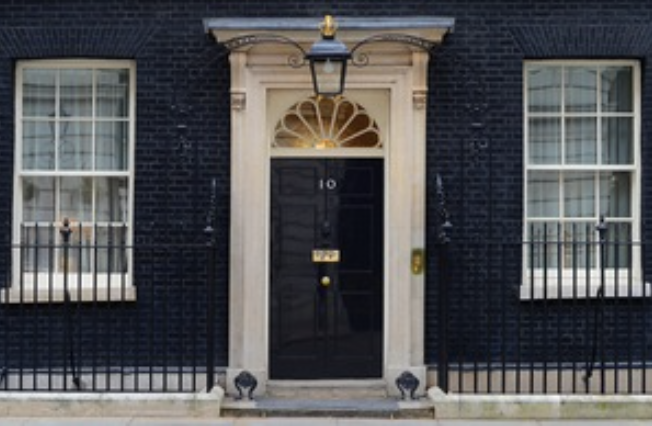Ed Smith, Co-CIO of Rathbone Investment Management, examines what the victory for new Prime Minister Liz Truss means for the UK economy and the impact of her plans on households and businesses.
Our previous research on the financial market implications of general elections has shown that even transitions from right wing to left wing governments, across a number of developed countries, have very little discernible impact on financial markets, so we don’t want to overplay the significance of an intra-party transition. This isn’t 2019, when the leadership contest was effectively a referendum on a hard or a soft Brexit, and when there was the threat of a far-left Labour leader in the wings.
That said, Liz Truss’ victory could mean the continuation of a fractious relationship with the EU, and possibly the rest of the world. As a minister, Truss introduced the Northern Ireland Bill, establishing procedures for the government to unilaterally overrule the Northern Ireland protocol and break international treaty law. This could result in a de facto “no deal Brexit” in all but name, damaging UK productivity and placing a ceiling on the extent that the pound could recover whenever the business cycle turns. International earners would benefit from a cheaper pound, but investors should be cautious on businesses that export from the UK to the EU.
Her desire to loosen fiscal policy in a fairly untargeted manner (eg. a blanket cut to VAT), increasing debt significantly, is inflationary, all other things equal. Given the backdrop, it will almost certainly be met with tighter monetary policy. This is likely one of the many factors leading to the huge surge in UK interest rate expectations over the last month.
But more fiscal support is essential, preferably highly targeted, and complemented by credible post-crisis growth policies. The Bank of England’s current forecasts for stubbornly high inflation means real household disposable incomes falling by 5% this year and 6% next year. Combined that’s equivalent of close to £3,000 for the typical household, or twice the hit they faced from the financial crisis. This is an impossible situation for lower income households, even after measures already announced. According to analysis from the Resolution Foundation, typical monthly energy bills averaged around £155 a month last winter. This winter they’re set to average around £500 a month, peaking at over £700 in January. The UK’s four million customers on pre-payment meters, who can’t smooth their bills over the year will have to find that cash upfront just to keep the heating on. £700 is over half of their entire disposable income.
An energy price cap, which will cost billions, seems inevitable. With the second lowest debt-to-GDP ratio in the G7 and the longest debt maturity profile (albeit with an unusually high proportion of inflation-linked debt), the UK can afford this. But to bring more comfort, we would want to see a roadmap for getting the UK back to decent rates of growth.
The current business secretary, Kwasi Kwarteng, published an op-ed in the Financial Times on Sunday in which he applauded Truss for being “unashamedly pro-growth” and spoke of a 2.5% growth target. Risibly, he failed to detail a single policy. The UK had dismal 1-1.5% trend growth between 2010 and 2020. The track record of business investment and productivity growth between the vote to leave the EU and the pandemic is shockingly poor, by international and historic comparison respectively.
But all we have are vague ideas about cutting taxes and red tape, which ignore the empirical revolution that economic science has undergone since these ideas gained popularity 50 years ago. For example, the notion that cutting already-competitive tax rates (particularly income taxes) provides a boost to growth beyond the short term was popular in the 1970s when there was little else to go on other than the leading abstract theories of neoclassical economists. Now that the empirical revolution has revealed economies are rather more complex, we need policies that take account of the real world. The government would do well to bring together cutting edge and detailed plans on increasing R&D expenditure, basic research, business infrastructure, adult human capital, to name a few.
Of course, Liz Truss’ plans to cancel the planned increase in the corporate tax rate from 19% to 25% would directly provide a boost to UK corporate earnings. UK domestics would benefit, with the international FTSE 100 seeing much less benefit, but we would not expect this to make a significant difference to long-term economic prospects.
We’re concerned about the timing of Truss’ proposed review of the Bank of England (although a thoughtful strategic review is never a bad idea). Inflation is as much an institutional phenomenon as it is a monetary one, and we need the credibility an independent central bank provides. With long-term expectations already showing some signs of becoming unanchored in the UK (in contrast to elsewhere), we wouldn’t want to see anything that exacerbates that.
There is speculation that she will introduce a lower inflation target, which risks deflationary problems further down the road, or a nominal GDP target. The latter has some theoretical attraction, but is practically flawed because GDP growth is such an imprecise measure (for one, it’s still being revised years after the period of measurement!). Changing the mandate in response to the last year is somewhat moot: no mandate would likely have achieved meaningfully different outcomes.
































